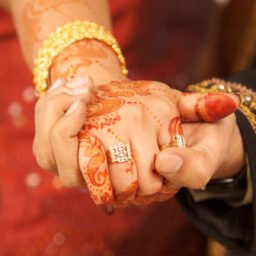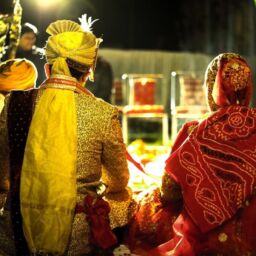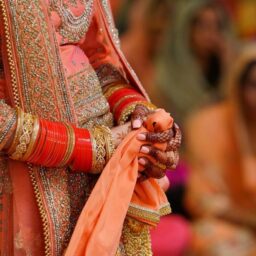BRIEF FACTS
The husband (petitioner) in the present case[1] filed a petition for divorce against the wife (respondent) on the ground of adultery u/s. 13(1)(i) of HMA[2]. It was alleged by the husband that after the birth of their first child, he started suspecting the wife of infidelity. On being confronted by the husband, the respondent admitted the same and requested to be pardoned but this allegation, as well as admission, is denied by the respondent. The petitioner even tried to get a divorce through mutual consent, which was never agreed to by the wife. The respondent in her written statement has stated that her husband is suffering from ‘mental hallucination’ and ‘paranoid disorder’. The questions that were put in the cross-examination of the petitioner suggested that he along with his family members are ‘lunatics’. It has been contended by the respondent that ‘a streak of insanity runs in the entire family’. The petitioner then decided to amend his petition and ask for divorce on the ground of mental cruelty u/s. 13(1)(ia) of HMA[3].
As the petition was pending in the lower courts for more than 8 years. Even after requesting the high court by Supreme Court to hear the matter in an expeditious manner, the case was still in its trial phase. The husband being unhappy with this moved to the Supreme Court again and the matter was admitted.
ISSUES
The main issue was whether the petitioner was entitled to get a divorce from the respondent on the ground of mental cruelty. The court also dealt with whether the marriage between the petitioner and respondent was irretrievably broken.
PETITIONER’S ARGUMENTS
The petitioner contended that there was a deliberate tactic from the side of the respondent to prolong the trial. He also contended that both the parties were in their 50s and the petition has been pending in the court for more than 8 years, a huge part of both their lives was consumed by the litigation. Moreover, the allegations put forth by the respondent with respect to the mental condition of her husband in the written statement and cross-examination were amounting to mental cruelty. He believed that their marriage has irretrievably broken down and now there will be no point in further delaying the granting of the divorce.
RESPONDENT’S ARGUMENTS
The respondent denied all the allegations made against her and stated that it was because of the petitioner that the trial was taking so long as he would appeal against any and every order passed by the court. Moreover, the respondent also contended that she was still willing to live with the petitioner and the counter-allegations made by her about the mental condition of her husband were just to defend herself. The respondent also submitted that the children as well as the mother and sister of the petitioner have sided with her, and it is only the petitioner who has alienated his family and persecuting her.
HELD
The apex court held in the favor of the petitioner and granted the divorce on the ground of cruelty. The judgment stated that the petitioner was a practicing advocate and allegation such as that of paranoid disorder, insanity, etc. by the respondent in her written statement as well as during the cross-examination of the husband would have led to mental cruelty as his image would have been tarnished. Moreover, the court refused to rely on the contention made by the respondent that she was still willing to live with the petitioner, this was so because, after so many allegations and counter-allegations that were made in the court, it was practically impossible to expect the parties to live together. The court even stated that it was a mere saying from the side of the respondent to torture the husband even more which pointed towards the fact that she was bent on treating the husband with cruelty.
While arriving at the judgment, the court also considered some landmark English cases on mental cruelty. It was stated in the case of Russell v. Russell[4], it is not possible to give an exhaustive definition to the concept of mental cruelty and while deciding on cases like these, consideration should be given to the background of parties that have been agreed by the Indian courts. In the case of Sheldon v. Sheldon[5], the court observed that each case of cruelty should be treated independently. What differs between Indian and English law is that under Indian law it is not necessary to show actual or probable injury to health, life, or limb, which is a requirement under English law as stated in Gollins v. Gollins.[6]
Thus, the court after being satisfied that the marriage between the parties has broken down irretrievably allowed the petition of divorce though without any cost. The court also mentioned that the husband was not able to prove the allegation of adultery against the wife thus the respondent’s character remains vindicated.
CRITICAL ANALYSIS
The judgment majorly dealt with two aspects of family law- (1) divorce on the ground of mental cruelty and (2) the theory of irretrievable breakdown of the marriage. Previously, cruelty was not a ground for divorce, and it was added only after 1976. As the section stood then, it was necessary to show that the cruelty was such to create a reasonable apprehension in the mind of the complaining spouse that it would be harmful to live with the other, held in Dastane v. Dastane.[7] The court held that cruelty mentioned u/s. 13(1)(ia) of HMA can also include mental cruelty and it is immaterial of the fact as to whether it was intentional or not.[8] The nature of cruelty should be such that the parties can no longer be expected to live together. While deciding on the cases related to mental cruelty, the court needs to look into two aspects- (1) the nature of the said cruel treatment and (2) the impact of such treatment on the complaining spouse. On the basis of these two, the court has to decide whether the complained act is such so as to constitute mental cruelty. In the cases of physical cruelty, it is easy for the court to adjudge the matter whereas in cases involving mental cruelty, the court must be cautious as it involves harsh treatment on the complaining spouse which might not be apparent on the face. Also, it was observed that what constitutes cruelty in one case might not constitute cruelty in the other case. Thus, no set parameters can be drawn as it depends on the social, economic, cultural background of the complaining spouses.
The court clarified in the judgment itself that divorce based on irretrievable breakdown of marriage is not a rule but an exception. It is not a ground by itself under Hindu law. Mere allegations against each other and delay in trial procedure cannot by itself lead to divorce on this ground. The apex court should be satisfactorily convinced to pass an order u/art. 142 granting divorce on the ground of irretrievable breakdown of the marriage. This power can only be exercised by the Supreme Court in exceptional circumstances. This is so because the institution of marriage under Indian society has a sacramental value attached to it. Thus, the judiciary, as well as the legislature, are reluctant to grant hasty divorces to couples as it will be detrimental to society in general. Though, the Law Commission of India in its 217th report recommended the legislature to amend the Hindu Marriage Act to include IBM as a ground for divorce under Hindu Law.
CONCLUSION
This landmark judicial pronouncement has stood the test of time. In cases involving mental cruelty, Bhagat v. Bhagat is often cited as the judgment deal in detail with the definition of mental cruelty. The concept has been dealt with in such a way as to appreciate the diverse situations that can fall within its ambit. The realm of cruelty has been called ‘wonderful’ by Justice Reddy, as it tends to include a situation within its realm in one case but the same might not be included in a different case because of the background of the parties.
Author(s) Name: Dhriti Yadav (Student, Bennett University, Noida)
[1] V. Bhagat v. D. Bhagat, 1994 SCC (1) 337.
[2] Hindu Marriage Act, 1955, s. 13(1)(i), No. 25, Acts of Parliament, 1955.
[3] Hindu Marriage Act, 1955, s. 13(1)(ia), No. 25, Acts of Parliament, 1955.
[4] 1924 AC 687.
[5] (19661) 2 All E.R. 257.
[6] 1963 UKHL 5.
[7] 1975 AIR 1534.
[8] Shobha Rani v. Madhukar Reddi, 1988 AIR 121.















